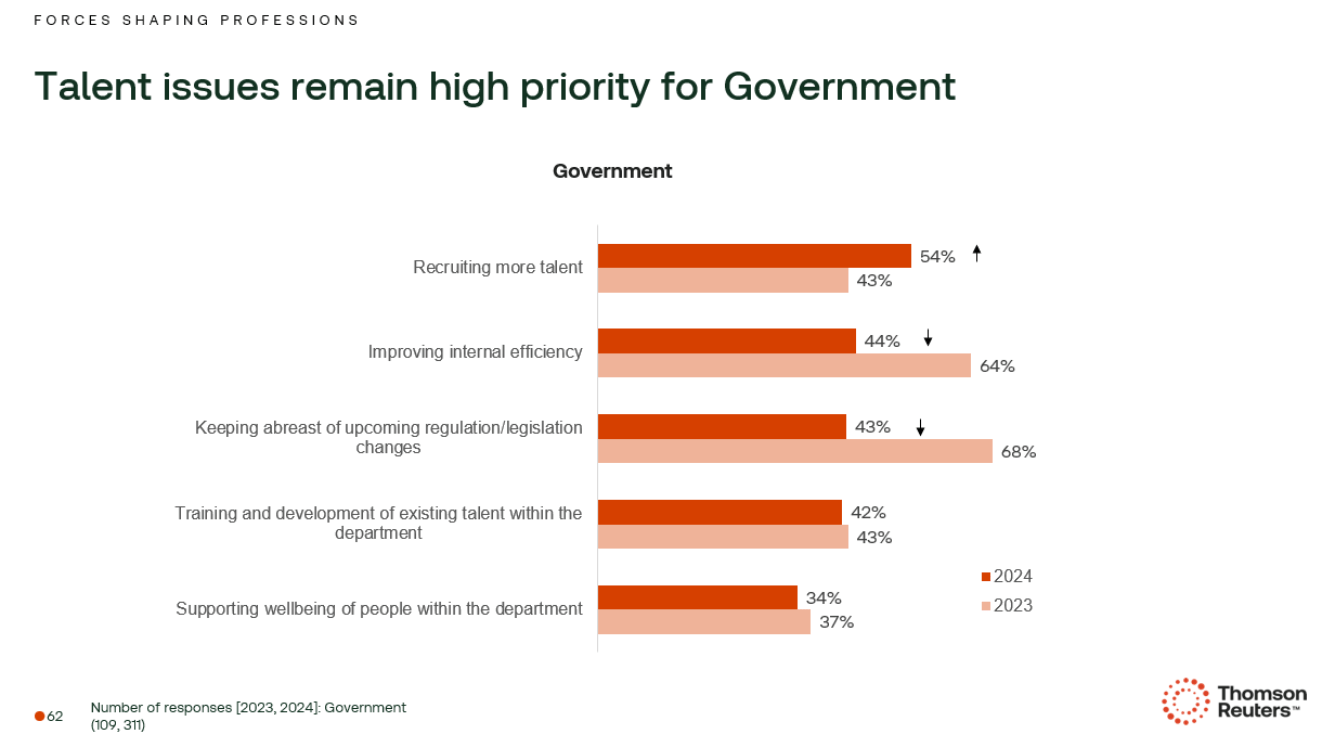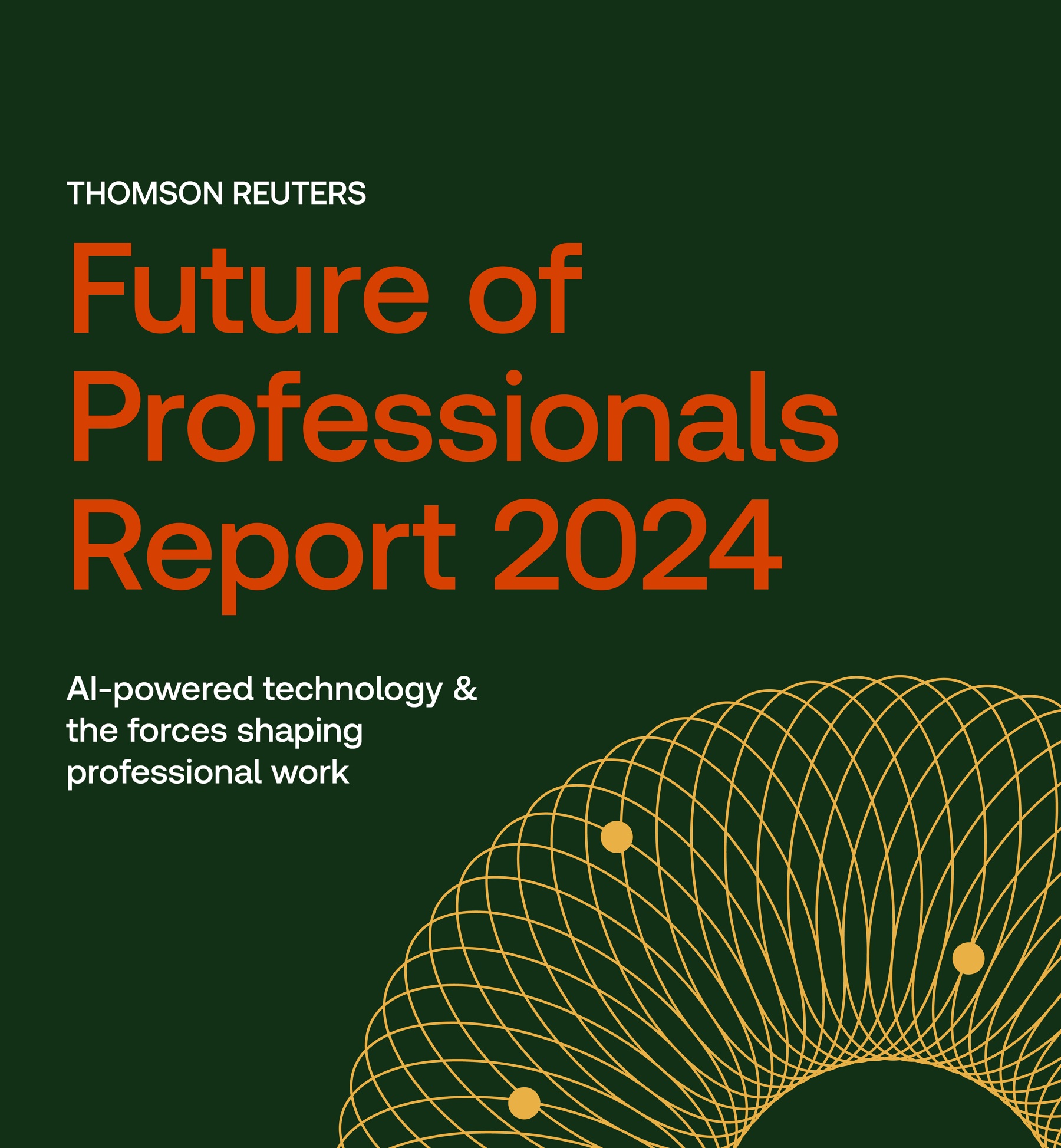For those government agency officials responsible for disbursing public funds and safeguarding tax dollars, artificial intelligence (AI) present a particularly double-edge sword.
On one hand, given the rapidly emerging capabilities of generative AI (GenAI), many risk professionals from all levels of government now feel they are doing battle in an environment in which criminals can more easily fake documents, develop deepfake audio and video, and even create all new identities — all with the aid of publicly-available AI tools.
On the other hand, these same AI capabilities can be used by government agency employees and investigators to better detect fraud, waste, and abuse within government programs and bring better efficiency to their own work processes, especially compared to their current results using their traditional manual processes.
And there is increasing research that shows that AI usage could prove immensely beneficial. In the recently released Thomson Reuters 2nd annual Future of Professionals Report — based on a survey of more than 2,200 respondents across the legal, tax, trade, accounting, and risk, fraud & compliance fields, and within individual firms, corporate functions, and government agencies around the world — more than three-quarters (77%) of all survey respondents said they believe AI will have a high or transformational impact on their work over the next five years.
Further, the data shows that using AI in work operations could free up additional work time at a pace of 4 hours freed up per week within one year; 8 hours in three years’ time, and 12 hours in five years.
Government workers more skeptical
When broken down for government workers, however, those averages were much smaller, equating to roughly 2 hours freed up per week within one year; 5 hours in three years’ time, and 8 hours in five years, according to the report. This was in addition to government workers saying they worked the lowest average number of hours per week, at 44 hours, and having the lowest percentage of workers (51%) saying they do not have enough time to complete all their government work each week.
The report pointed out that “government respondents showed much higher levels of skepticism, especially around the ability of their… government agency to drive the pace of AI adoption.” Indeed, around 30% of government respondents said the overall appetite or policies with their government agency would be a strong or moderate limiting factor on AI adoption.
Despite this seeming dismal assessment, government workers still can expect a significant gain in productivity and internal efficiency from the use of AI in their work operations, the report noted. And interestingly, many government agency workers said they are more likely to want to use that extra time for core tasks and long-term projects, as well as research and workload management.
Perhaps this adherence to work and task management is unsurprising considering that when asked about their agency’s highest priority for the next 18 months, more than half of government workers (54%) said it was “recruiting more talent”, ahead of even “improving internal efficiency” and “keeping abreast of upcoming regulations and legislative changes” — a clear indication that government agencies are concerned about loss of institutional talent and knowledge as older government workers begin to retire.

Uses of AI in government work
Yet, despite their acknowledgement that AI and GenAI will have a tremendous impact on how they do their government work in the future, right now many government agencies seem to be content to wait and see how these new technologies play out in other fields, like legal and tax, before jumping into a deeper adoption of these innovations.
For example, in the Thomson Reuters Institute’s 2024 Government Fraud, Waste & Abuse Report, nearly half (45%) of the government risk and fraud professionals surveyed said they believed that GenAI can play an active role in their work. Yet, by and large, those government officials who conduct fraud detection are still doing so most often by more traditional methods.
Overall, strong majorities of government agency workers said they use Google (61%) and government websites (58%) for public records searches and for fraud, waste, and abuse investigations. Interestingly, those percentages are down significantly from just two years ago, and more than half (51%) said they are now using Thomson Reuters CLEAR as a records-search tool, which itself is up from just one-third of survey respondents using it five years ago. This may be due to the growing understanding that public-facing online search engines like Google can be productive when answering general questions but are often too unwieldy, time-consuming, and inaccurate for the specialized needs of professional fraud investigative searches.
Of course, as these reports show, the methods used by government agency workers to detect and investigate fraud, waste & abuse are often used together. And particularly in the current environment, government officials may be well-served by combining these tried-and-true methods with newer AI-driven technology tools, especially as large numbers of them say they see GenAI as a critical way to address their government work challenges in the future.
 |
 |
Thomson Reuters is not a consumer reporting agency and none of its services or the data contained therein constitute a ‘consumer report’ as such term is defined in the Federal Fair Credit Reporting Act (FCRA), 15 U.S.C. sec. 1681 et seq. The data provided to you may not be used as a factor in consumer debt collection decisioning, establishing a consumer’s eligibility for credit, insurance, employment, government benefits, or housing, or for any other purpose authorized under the FCRA. By accessing one of our services, you agree not to use the service or data for any purpose authorized under the FCRA or in relation to taking an adverse action relating to a consumer application.










